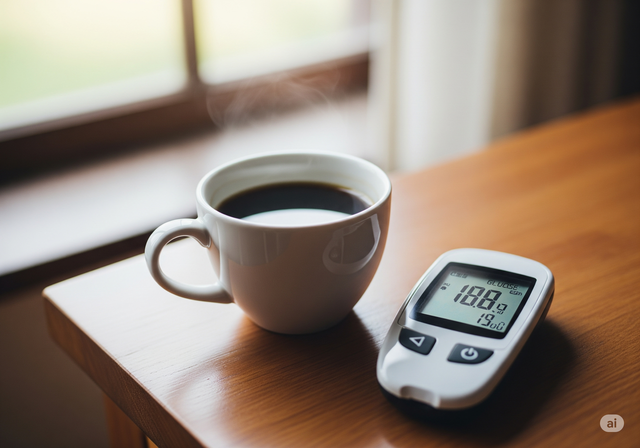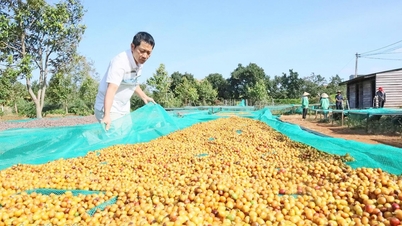Does coffee raise blood sugar?
Experts say the extent of the effects depends on the dose, your body, when and how you drink coffee. In some people, caffeine in coffee can increase blood sugar levels in the short term and affect insulin response, especially those with insulin resistance, prediabetes or type 2 diabetes.
Caffeine stimulates the body to release stress hormones like adrenaline, which interferes with insulin production. It also stimulates the liver to release stored glucose, making it harder for cells to absorb this excess sugar, causing blood sugar to rise.

Caffeine is absorbed more quickly on an empty stomach, which can cause a sudden spike in blood sugar, especially if the coffee contains added sugar.
Photo: AI
Important things to note
Drinking coffee on an empty or full stomach can also make a difference. According to nutritionist Candace Pumper of Ohio State University (USA), caffeine is absorbed more quickly on an empty stomach, which can cause a sudden spike in blood sugar, especially if the coffee has added sugar. However, this effect is usually short-lived.
Dr. Andrew Odegaard, from the University of California, (USA), said that long-term studies show that drinking coffee regularly can help reduce the risk of type 2 diabetes. The reason is that coffee contains compounds with antioxidant and anti-inflammatory properties, which help neutralize some of the negative effects of caffeine, according to the health news site Verywell Health.
How to drink coffee to avoid high blood sugar
If you're concerned about your blood sugar but can't give up coffee, here are some tips to help you:
Drink coffee during or after meals: This helps slow down the absorption of caffeine and limit sudden increases in blood sugar.
Choose unsweetened coffee.
Use reduced or decaffeinated coffee: This type of coffee is suitable for people who are sensitive to caffeine or have insulin resistance.
Track your personal response: You can pay attention to how your body feels after drinking coffee, or use a blood sugar monitor to observe the effects at different times.
So, drinking coffee doesn’t necessarily harm your blood sugar if you use it properly. While caffeine can temporarily increase blood sugar, especially on an empty stomach or in people with insulin resistance, in the long term, coffee can be beneficial for blood sugar control if used appropriately, according to Verywell Health.
Source: https://thanhnien.vn/dieu-gi-xay-ra-voi-luong-duong-trong-mau-khi-ban-uong-ca-phe-moi-ngay-185250728214240818.htm


![[Photo] Da Nang: Hundreds of people join hands to clean up a vital tourist route after storm No. 13](https://vphoto.vietnam.vn/thumb/1200x675/vietnam/resource/IMAGE/2025/11/07/1762491638903_image-3-1353-jpg.webp)










































































































Comment (0)